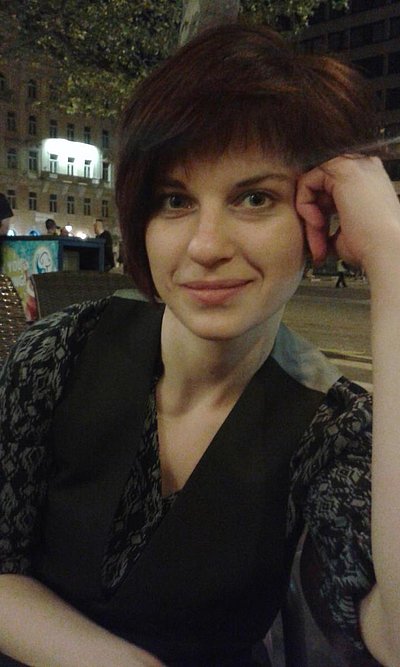Gastvorträge von Katsiaryna Suryna
16. Okt. 2018, 14.00 bis 16.00 Uhr Interface Culture Lecture Room, Domgasse 1, 3.OG, DO.03.27
Die Abteilung Interface Cultures lädt zu zwei Gastvorträgen von Katsiaryna Suryna (Central European Universiy Budapest).
Lecture 1: Science-Art beyond Education and Illustration
Abstract
The burgeoning area of science-art has demonstrated that art interacts with the sciences in manifold ways. However, it seems that some scientific fields, rather than others, afford more fruitful and numerous interactions with art. This talk revolves around the question of why this is so. Why molecular biology rather than cognitive science or cognitive neuroscience? In this talk, the issue of discipline preferentiality is approached not simply in view of the amount of joint artistic projects but rather as a matter of possibilities for an extra-academic transdisciplinarity, i.e., a form of inquiry involving various scientific disciplines and extra-academic agents to work on complex problems. Such a perspective allows seeing a fruitful interaction between art and science as going beyond using art for the purpose of educating a general public or proving an appealing demonstration of scientific findings. To tackle the discipline preferentiality, the talk will touch upon the issue of the art-to-science contribution approached against a broader background of arguments over the identity of present-day art and science. Furthermore, strategies for justifying the transdisciplinarity will be explored, namely: making science socially accountable, fostering innovations, and providing a commentary or reflection on practices of science. Making science socially accountable and providing a knowledgeable commentary can be achieved without involving art; on the other hand, art can provide a uniquely powerful way to achieve these goals. Given that, the nature of an artistic input afforded by a particular scientific discipline, as well as its ability to sustain any of the goals of transdisciplinarity contributes to discipline preferentiality in science-art.
Lecture 2: Computer Creativity and the Use of AI in Science and Art Production
Abstract
This talk focuses on explicit attempts at developing artificial intelligence in the production of art that generates outcomes similar to, or even technically superseding, the works of human artists. The aim is to reveal the underlying discourse that equates art production with the transformation of information, artists with input/output systems, and artistic creativity with an unlimited and autonomous generation of art-like outcomes. This understanding does not fully conform to how contemporary artistic practices are perceived and valued, and often does not allow us to fully appreciate the developments in this field and their articulation within the existing art world. The talk will start from the exposition of Margaret Boden’s accounts of creativity and proceed by examining different arguments to the effect that computer creativity is identical to artistic creativity. As the issue of computer creativity often turns on whether AI is capable of possessing knowledge, these arguments will be brought to bear to the context of AI in scientific knowledge production. Interesting parallels can be drawn between, on the one hand, the issues of the value of computer generated outcomes and AI’s entitlement to the transformation of our aesthetic standards, and, on the other hand, extant epistemological concerns about the reliability of information produced by AI that is inscrutable to both its users and designers.
My sphere of interests comprises philosophy of cognitive sciences, philosophy of mind, and neurosciences. I am working on the prospects of a productive interaction between phenomenology and cognitive neuroscience.
Katsiaryna Suryna | Department of Philosophy | CV

